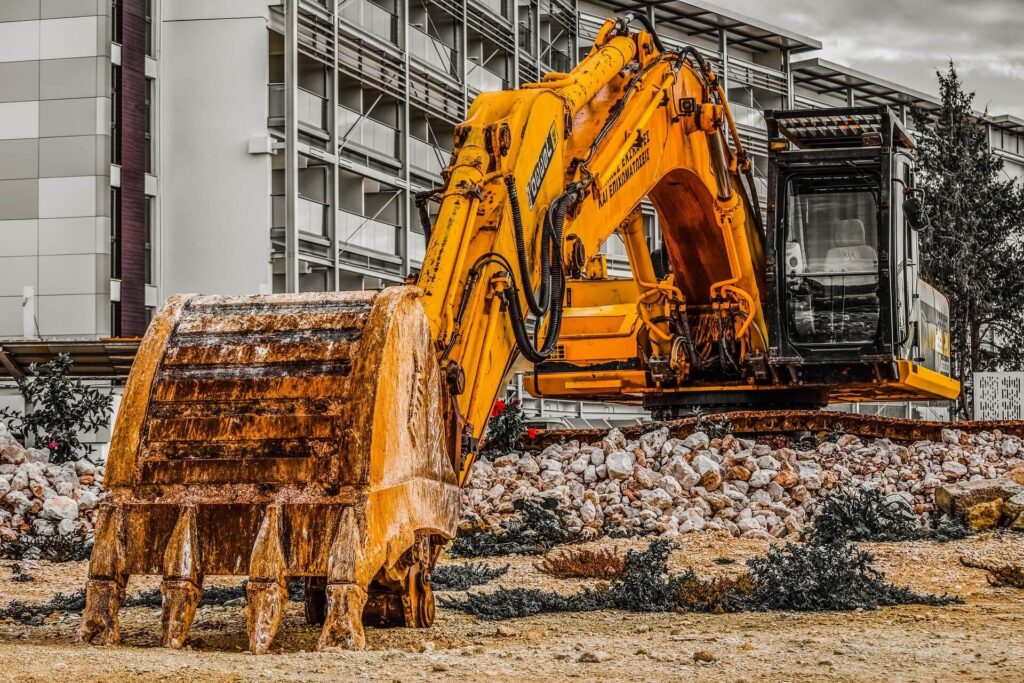 Trench collapses are among the greatest dangers that construction workers face. If not properly secured or reviewed after rainfall, a cave-in can occur, leading to serious or fatal injuries to workers in it and even those standing around it. This is also a major issue as New York construction ramps up again. If a property owner or supervisor failed to ensure a trench is safe to work in or failed to close down their job site safely, then workers could be put in serious danger of suffering traumatic injuries.
Trench collapses are among the greatest dangers that construction workers face. If not properly secured or reviewed after rainfall, a cave-in can occur, leading to serious or fatal injuries to workers in it and even those standing around it. This is also a major issue as New York construction ramps up again. If a property owner or supervisor failed to ensure a trench is safe to work in or failed to close down their job site safely, then workers could be put in serious danger of suffering traumatic injuries.
Hazards of an Excavation
Cave-ins during excavation cause approximately 1,000 work-related injuries a year, 75 of which are fatal, and 140 of which result in permanent disability, as stated by the National Institute for Occupational Safety and Health (NIOSH). Because of these staggering statistics, reducing trenching and excavation hazards has become OSHA’s priority goal.
But cave-ins are not the only danger presented to workers. An unsecured or improperly maintained excavation can lead to a variety of trench accidents, including:
- Falling equipment, loads, or construction materials
- Heavy machinery accidents
- Falls into the trench
- Hazardous atmospheres that lead to a lack of oxygen and asphyxiation
To avoid such accidents, OSHA has outlined a variety of rules and guidelines on how to prevent trench and excavation injuries.
OSHA Standards for Excavation
OSHA has set specific requirements to protect construction workers during excavations, and supervisors have a duty to ensure these requirements are met. Workers should be fully aware of these laws as well to ensure they understand their rights after an injury.
OSHA requirements include:
- Sloping or benching trench walls (cutting back the walls at an angle inclined away from excavation)
- Shoring trench walls with supports (installing aluminum hydraulic or other supports to prevent movement of soil)
- Shielding trench walls with trench boxes or other supports to prevent cave-ins
- Ensuring workers have a safe way to enter and exit trenches
- Keeping materials away from the edges of trenches
- Inspecting trenches daily
- Checking for atmospheric hazards
- Looking for standing water
- Ensuring trenches are correctly inspected before workers enter
Alongside OSHA’s requirements, property owners and supervisors are required to abide by local New York laws, such as New York Industrial Code Rules Subpart 23-4 and New York Labor Law Section 241(6). Violations of specific provisions may be grounds for workers injured in excavation to recover compensation.
Duty of Supervisors to Prevent Trench Collapses
A supervisor on an excavation site should be a competent person who was trained to determine hazards and been given the authority to take corrective measures to remove risks. When planning an excavation or reviewing one after a job site has been closed for some time, a supervisor should:
- Classify the soil on the site to determine the stability
- Supervise water removal equipment
- Design and implement ramps
- Inspect protective systems for trenches
- Conduct overall site inspections
Excavations require a keen eye for detail and a thorough review of the site. Failure to take these steps puts everyone on a job site at risk and makes the supervisor liable for any injuries the workers sustain.
Liability for New York Excavation Injuries
Because of the significant risk for injury during an excavation, property owners and supervisors should take every step to minimize the dangers presented to workers. This includes following all OSHA guidelines and standards, as well as abiding by local New York laws regarding construction sites. Failure to do so can lead to tragic accidents and make the at-fault party liable for compensation.
If you have been seriously injured or lost a loved one in an excavation cave-in or trench accident, you may have options beyond workers’ compensation for recovery. Depending on the circumstances, you may have a personal injury claim against a negligent contractor or property owner. That is why it is important to discuss your case with a knowledgeable New York construction accident attorney before agreeing to a settlement offer. After a free initial consultation, the legal team at Wingate, Russotti, Shapiro, Moses & Halperin, LLP, can tell you if you have a case and what damages you may be entitled to claim. Call us at (212) 986-7353 to ensure not a single cent is left out of your accident claim.